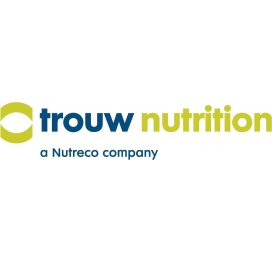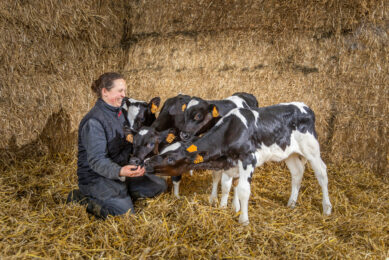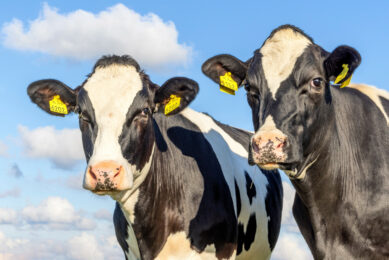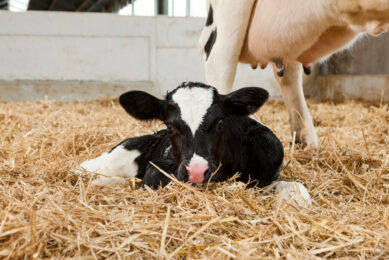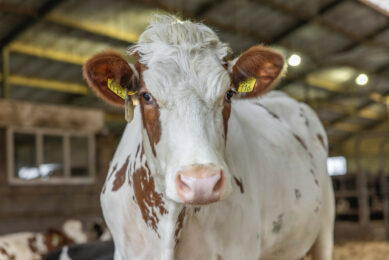Milk: Adding value by reducing its environmental footprint
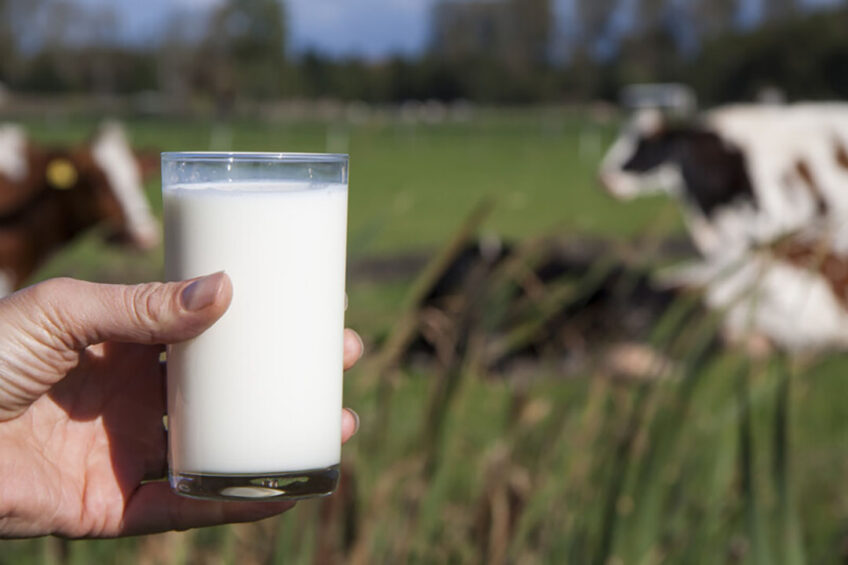
Producing the desired quantity of milk is an art that most dairy producers master well. But for future proof dairy production, dairy products should be produced in a more sustainable way. A new LCA service simply calculates the environmental impact per kilogram of milk. Here’s how.
Globally, milk production is on the rise. This is not the result of more dairy cows per se, but the result of increased milk production per cow, realised by feeding quality rations, applying good husbandry and health management, combined with advanced genetic progress of modern dairy breeds. At the same time, dairy farmers are increasingly challenged with high input costs (feed, labour), more extreme weather conditions (such as drought in some dairy regions) and more stringent legislation. While European farmers benefited from high milk prices in 2022, challenges do remain. According to Rabobank, inflation increases food prices and places future dairy consumption under pressure. The Dutch bank states that consumers have not left the dairy aisle (yet) because of this and says that that adding value to dairy becomes increasingly important. And this is where opportunities lie.
Sustainability: High on the agenda
When we talk about the value of milk, we talk about milk that is produced under the best possible conditions. This includes how cows are treated, what feed they consume, and the effect that milk production has on the planet. And especially the latter (sustainability) is – and will be – an important license to operate and a way to gain a competitive advantage. Sustainability is high on the EU agenda and strongly embedded in the EU Green Deal action plan and affiliated subprograms. The EU is also thinking about mandatory disclosure of carbon data on food products, although no decisions on this topic has been made. In France, some food chains and online food shops already (voluntary) use The Eco-Score, that class food products from A (low) to E (high) according to their impact on the environment. And finally, most countries have signed the Paris Agreement, which entails that immediate greenhouse gas (GHG) emission reduction in all sectors – and in all regions around the world – is necessary. It is clear that action must be taken, and sustainable production of animal protein must, and will, become the new norm.
Dairy sector takes responsibility
The dairy sector is taking its responsibility to make milk production more sustainable and hence becomes more transparent about the environmental impact data of their production and end products. We see an increased number of farmers (and milk) enrolled in sustainability programmes, set up by dairy processors and/or retailers. In 2023, Danone announced to commit to a 30% reduction in their methane emissions from fresh milk by 2030, aligning their efforts with the Global Methane Pledge and reaffirming methane reduction as an essential pillar of the 1.5°C journey. Dairy processor Arla is committed to reducing on-farm carbon emissions per kilo milk by 30% by 2030. Dutch based dairy producer FrieslandCampina is aiming for a 33% reduction of scope 3 emissions per kg milk on their member dairy farms (compared to 2015). The bigger goal is to produce net climate-neutral dairy by no later than 2050. All of the sustainability programmes out there help dairy farmers to actively reduce their on-farm emissions and reap the benefits from it in the form of premium payment for the milk. FrieslandCampina for example pays farmers an extra 1.5 Eurocents/kg milk when emissions (CO2 equivalent) are 0.9 kg or less per kg milk.
Start with the numbers
The focus on making dairy more sustainable has spiked the demand for Life Cycle Assessment (LCA) tools to accurately calculate the environmental impact of products and production processes. Pinpointing weak spots and practices that contribute to the environmental impact of dairy production (both at the processing part and on-farm practices) helps start the journey to more sustainably produced milk. Because once we know the numbers, we can work towards the sustainability goals and reward farmers for their actions. Trouw Nutrition is committed to making emission-reduction strategies more accessible to farmers and feed advisors. One way we are working to achieve this is by developing LCA services. Because animal feed is having a significant impact on the total environmental impact of end-products such as meat, milk, and eggs, the first LCA service launched by Trouw Nutrition is MyFeedPrint. This service calculates different environmental impact parameters of the feed ingredients and complete feed (blends), including the effect on climate change (what we call the carbon impact, measured in kg CO2 equivalent). It allows feed advisors to formulate dairy rations on price, nutritional value and the environmental footprint of the feed ingredients used.
Make more sustainable decisions
While feed (for the lactating cows as well as youngstock and dry cows) represents a big part of the total environmental impact of milk (around 40%), there are more contributors involved, such as farm operations, manure management and enteric fermentation. To provide an accurate estimate of the environmental impact data per kg of milk produced, Trouw Nutrition recently added MyMilkPrint to its LCA portfolio. This new service uses farm specific inputs such as milk production, energy use, farm grown ingredients, combined with data of purchased feeds and nutritional data. Having this valuable data enables feed advisors to help dairy producers make more sustainable decisions and be more competitive, without losing milk production and animal performance. For example, changing a fat or protein source with an alternative ingredient – with a lower environmental footprint – can already lead to significant reductions in the environmental impact of the total ration and hence the milk. The MyMilkPrint report can be shared with end customers (retailers and processors) as inputs for their own LCAs.
Milk with an added value
There is a clear need to provide transparency around the environmental impact of milk production. Considerable progress has already been made across the industry. However, there is still scope for increasing the transparency around the environmental impact of dairy production, applying improved practices, and better monitoring progress. Strong and verifiable environmental credentials will, therefore, be critical to meeting future market demands, complying with regulations, and boosting the reputation of dairy production. Early adopters are already benefiting from a competitive advantage, enabling stronger partnerships with retailers and improved credibility in the market. In line with Trouw Nutrition’s ambition to continuously contribute to a more sustainable animal protein value chain, more innovations are in the pipeline that help catalyse positive change in the industry. MyFeedPrint and MyMilkPrint are now ready for further roll out and ready to contribute to a more sustainable dairy value chain. This is how we feed the future, care for the planet, and add value to each glass of milk.


